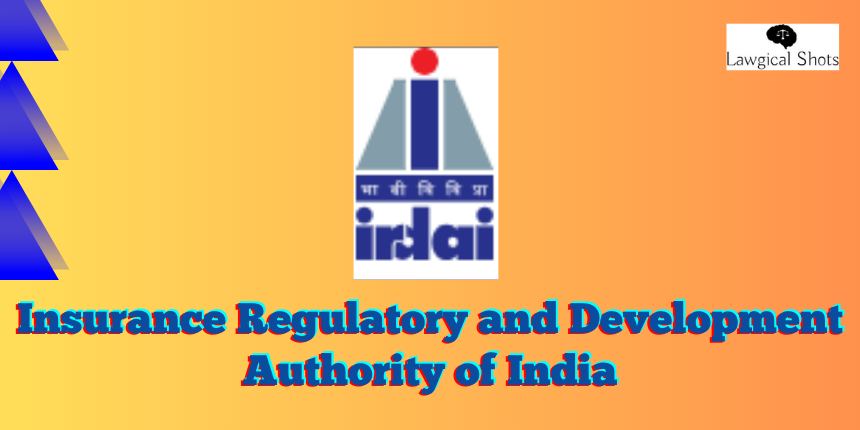The Insurance Regulatory and Development Authority of India (IRDAI) is an independent organization in India that oversees and manages the insurance industry, including both life and general insurance companies. It ensures that all insurance companies follow a standard set of rules and regulations, making the system organized and fair for everyone. Insurance Regulatory and Development Authority is a regulatory body established with an aim to protect the policy holder’s interest. IRDA was constituted by the Insurance Regulatory and Development Authority Act, 1999. IRDAI comes under the Ministry of Finance of India.
Insurance Regulatory and Development Authority of India
The IRDAI helps in the Regulating and Promoting the Insurance Industry for Public and Economic Benefits. It was after the recommendations of the Malhotra Committee report, the Insurance Regulatory and Development Authority (IRDA) was established in 1999 as an autonomous body to oversee and promote the insurance industry. It became a statutory body in April 2000. Insurance Regulatory and Development Authority of India (IRDAI) headquarter are located in the Hyderabad and regional offices are in Mumbai and Delhi.
Know more about Special Contracts
Who is the Chairman of IRDA
Shri Debasish Panda is an officer of Indian Administrative Service of 1987 batch of Uttar Pradesh cadre. His home State is Odisha. He joined as Chairman, Insurance Regulatory and Development Authority of India on 14th March 2022.
Objective of IRDAI
Through the subject of provision of the act, the authority of the act, the authority shall have a duty to regulate, promote and ensure orderly growth of the insurance business and re-insurance business.
Powers and Functions of IRDAI
- To issue to the applicant a certificate of registration, renew, modify, withdraw and suspend the same;
- To protect the interests of the policy holders in matters concerning assigning of policy, nomination by policy holders, insurable interest, settlement of insurance claim, surrender value of policy and other terms and conditions of contracts of insurance;
- To specify the requisite qualifications, code of conduct and practical training for intermediary or insurance intermediaries and agents.
- To specify the code of conduct for surveyors and loss assessors
- To promote efficiency in the conduct of insurance business.
- To promote and regulate professional organisations connected with the insurance and re-insurance business.
- To levy fees and other charges for carrying out the purposes of this Act.
- To call for information from, undertaking inspection of, conducting enquiries and investigations including audit of the insurers, intermediaries, insurance intermediaries and other organisations connected with the insurance business.
- To control and regulate the rates, advantages, terms and conditions that may be offered by insurers in respect of general insurance business not so controlled and regulated by the Tariff Advisory Committee under section 64U of the Insurance Act, 1938 (4 of 1938).
- To specify the form and manner in which books of account shall be maintained and statement of accounts shall be rendered by insurers and other insurance intermediaries;
- To regulate investment of funds by insurance companies.
- To regulate maintenance of margin of solvency.
- To adjudicate disputes between insurers and intermediaries or insurance intermediaries.
- To supervise the functioning of the Tariff Advisory Committee.
- To supervise the percentage of premium income of the insurer to finance schemes for promoting and regulating professional organisations referred to in clause.
Constitution of IRDAI
The Insurance Regulatory and Development Authority of India consists of ten members. It includes a Chairman, five whole time members, four part-time members all appointed by the centre Government of India. Amongst persons of ability, integrity and standing who have knowledge or experience in life insurance, general insurance, actuarial science, finance, economics, law, accountancy, administration or any other discipline which would, in the opinion of the Central Government, be useful to the Authority.
Conclusion
The Insurance Regulatory and Development Authority or IRDA plays an important role in smoothly maintaining and functioning of the insurance sector in India and protect the interests of the policy holders in the country. The Indian Insurance sector is growing rapidly and more and more insurance types are being introduced. So, for the sake of maintenance of transparency in the insurance sector and pace of growth, the Insurance Regulatory and Development Authority or IRDA needs to maintain the standards of quality. It further contributes to strengthening the financial capacity of a country.
Through strict regulation and market discipline, the government has successfully shaped a competitive yet controlled framework within the insurance sector. Moreover, the IRDA Act has been an important tool in promoting financial inclusion by extending insurance services to rural and underserved regions because through this Act there are less chances that they getting fraud from any company, aligning with India’s broader economic development. It also helps the policy holders in the way that they have a wider scope to choose their Insurance companies backed by and protect and safeguard them from malpractices and frauds.
The introduction to the IRDAI has been brought in by our intern, Mr. Tejas Fondu Sawant. He joined the team to assist and bring informational legal blogs.








